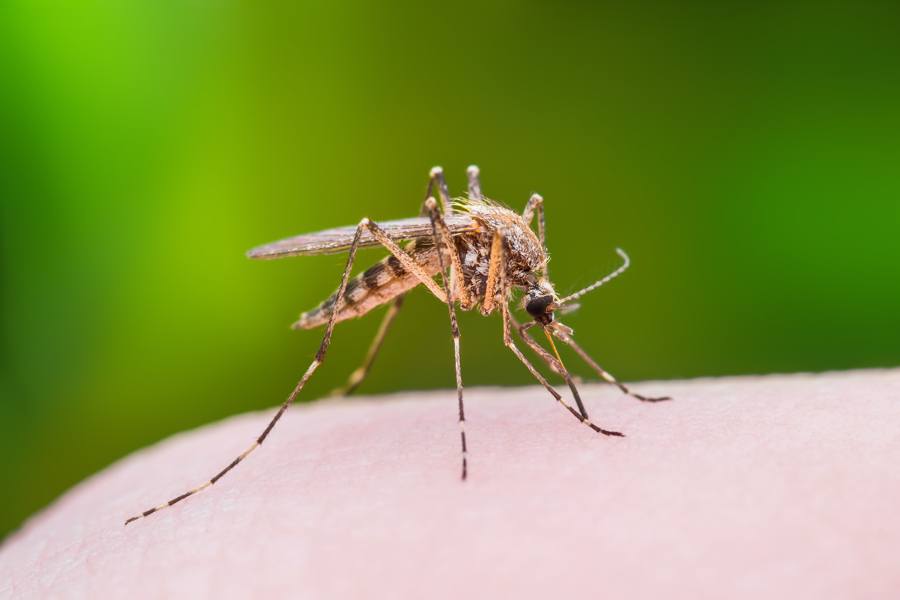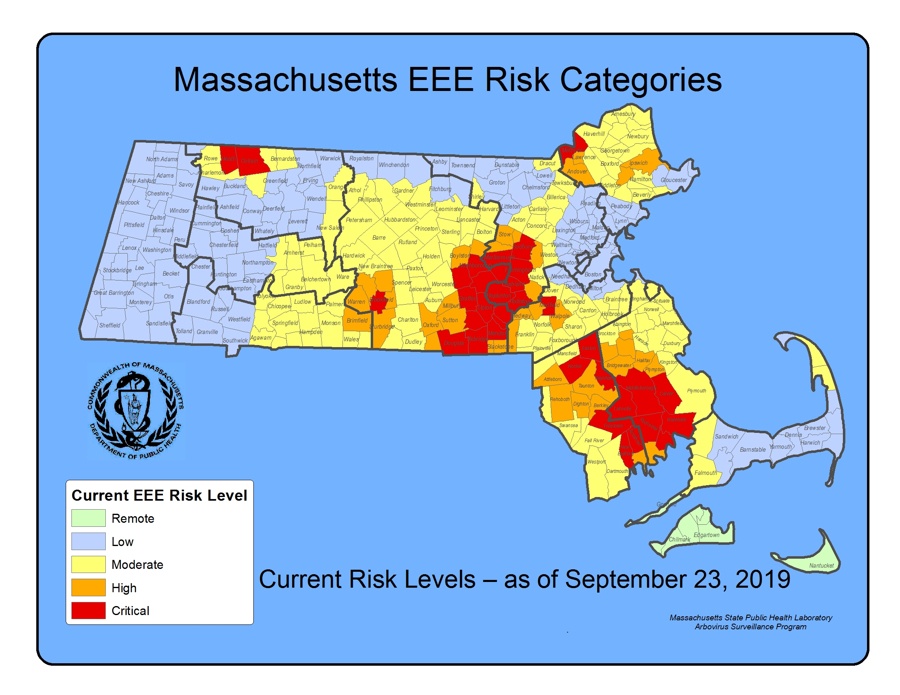A Third Person Has Died from EEE in Massachusetts
The news of a death in Hampden County comes as swaths of the state are deemed at "critical" risk for the virus.

Getty Images/nechaev-kon
In a summer that’s seen the state’s most significant outbreak of EEE since the 1950s, a third person has reportedly died from the mosquito-borne virus that causes the disease.
The Massachusetts Department of Public Health says it has learned that someone who had contracted the disease has died in Hampden County, the section of the state that includes Springfield and the Pioneer Valley. Other identifying information, including the person’s age, has not been released.
“There was a third EEE death among the 10 human cases reported in the state,” DPH spokeswoman Ann Scales says in an email.
The news follows the deaths of two people: a man in his 70s from Bristol County and a woman in her 50s from Fairhaven. In addition to the ten human patients in Massachusetts confirmed to have the disease, EEE has also been found in seven horses and one goat in the state. Two people have also been diagnosed with West Nile Virus, which is also carried by mosquitos. A woman also reportedly died of EEE in Connecticut, the state’s first EEE death since 2013.
Eastern equine encephalitis, or EEE, is a rare disease transmitted through mosquito bites that can lead to serious neurological ailments and death, according to the DPH website. It emerges every few years in Massachusetts, but state public health officials say this year’s outbreak is particularly noteworthy. In response, they’ve advised people to take extra precautions to avoid mosquito bites, several towns have canceled outdoor youth sports activities, and the state has been leading spraying operations. Symptoms are described as being similar to the flu and include neck stiffness, headache, and lack of energy.
Right now, three-dozen communities have been labeled at “critical” risk of exposure. Boston has been deemed “low” risk.
“Even as temperatures cool, it’s vitally important for us to remember that mosquito season is not over and that we all need to continue to take steps to prevent mosquito bites,” Monica Bharel, Public Health Commissioner, said in a press release earlier this month. “Use bug spray, wear long sleeves and pants to reduce exposed skin, and stay indoors from dusk to dawn when mosquitos are most active.”
Bharel also said ahead of this recent spate of warm weather that people should be extra vigilant while enjoying the outdoors.

Map via Massachusetts Department of Public Health


